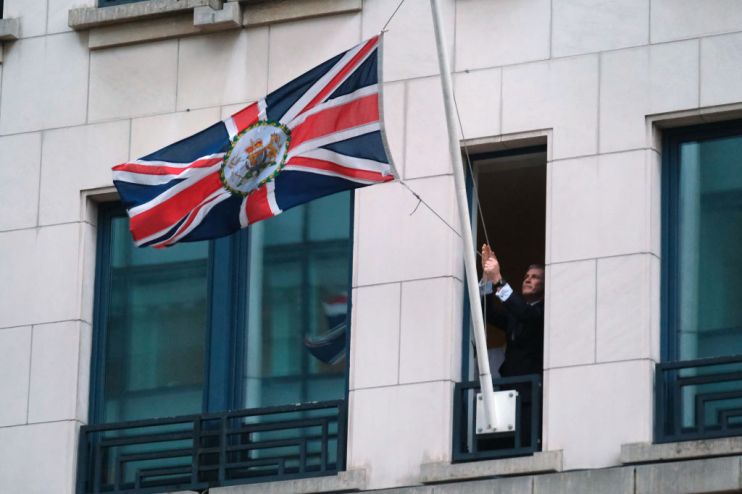Capital exports: London should have its own diplomats in every UK embassy to make Britain truly global

British embassies around the world run the whole gamut. From No. 35, rue du Faubourg Saint-Honoré to Level 19 of the Shangri-La Offices in Ulaanbataar, they look different but all have the same purpose: to maintain and develop relations between the UK and the host country.
That can mean a multitude of different things in the post-Brexit era of “Global Britain”. Embassies and consulates are, of course, the call of last resort for UK nationals who have had some kind of crisis or mishap abroad, and the grand diplomacy of ambassadors and their counterpart governments can still be a game of careful words and calculated verbal parries. Increasingly, however, we think, and are encouraged to think, of embassies as shop-fronts for the UK, and their staff as salespeople.
They can also be umbrellas under which others can shelter. Defence attachés can talk to those in uniform; the British Defence Staff in the US has 750 men and women across the country. The Scottish Government has also seen the glimmer of opportunity, and has seven international offices across the world to make sure the skirl of the pipes is heard. Yet London, the capital and vastly dominant economic centre of the UK, accounting for more than a fifth of our national wealth, doesn’t receive the same kind of treatment.
It is easy to feel conflicted about London’s prominence. We like to trumpet its extraordinary economic pre-eminence—even a generous attitude towards New York will generally rank London second in the world—and we talk lovingly of its cultural and creative diversity, its vibrancy and the allure of its bright lights.
At the same time we grumble anxiously about the disparity between London and the South East on the one hand and the rest of the UK on the other, about the need for our economy to “level up” to achieve greater equality and solidarity, and we fear that the capital might be like the legendary upas tree, destroying all potential for growth around it.
There is certainly a debate to be had around the desirability of the UK’s urban unipolarity, but there is also truth in the old saw that we are where we are. London is our greatest economic centre, a global player and the UK’s chief glory on the world stage. How can we promote it better?
It may be a glib and bureaucratic proposal to suggest an embassy of any size should have a “First Secretary (London)” or similar on its staff. However, there there should certainly be a designated point of contact for matters affecting the capital, whether in terms of movement of labour and services, inward investment, trade promotion or anything else.
Nominated London diplomats would be able to create internal networks, so that each month, for example, there could be a conference call involving all of the ‘London’ officers in (say) sub-Saharan Africa. It may well be that an investment opportunity for a London-based company in Nairobi might also have some resonance in Kampala or Dar-es-Salaam.
The embassy structure must reach outwards too, naturally. The London Chamber of Commerce and Industry, CBI London, London and Partners: there is no shortage of organisations dedicated to promoting the capital and its growth and prosperity, and the government should use its network of overseas missions to create a space in which these can operate. The state works best when it uses its powers to provide a platform and then steps back while the private sector does what it is trained to do.
Then there is the figure of the mayor himself. In a few days’ time we will likely have confirmation of Sadiq Khan’s second term at City Hall. Much of what the mayor does, especially in terms of international trade and investment, is to act as a cheerleader for the city, a role to which Boris Johnson and Ken Livingstone were, in their own ways, well suited.
If one campaigns in poetry but governs in prose, then one plans with bold strokes but executes with a thousand tiny lines. It would be easy to say that we should have a “London trade czar” to tour the capitals of the world, but in truth it is more effective and realistic to look at incremental change, creating sustainable networks and shifting one degree at a time, On one issue we must be very clear, however: if Global Britain is to work, if we are to make an economic recovery on an international scale, then London must be its beating heart. That pulse needs to be heard in every embassy and consulate around the world.
